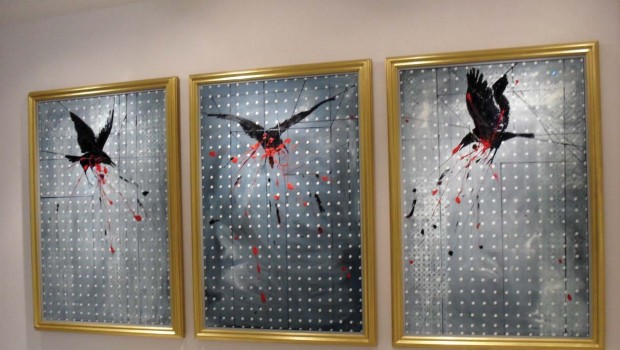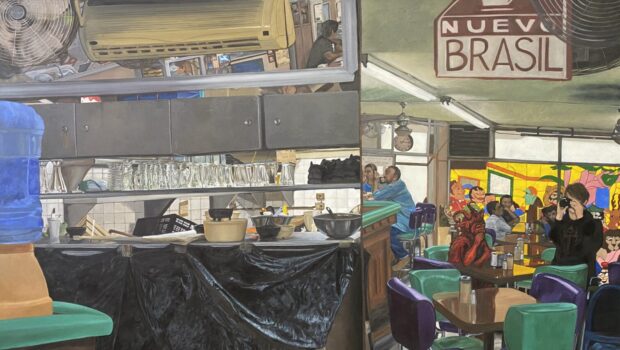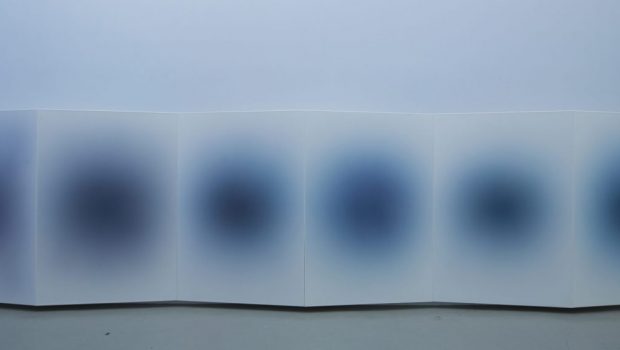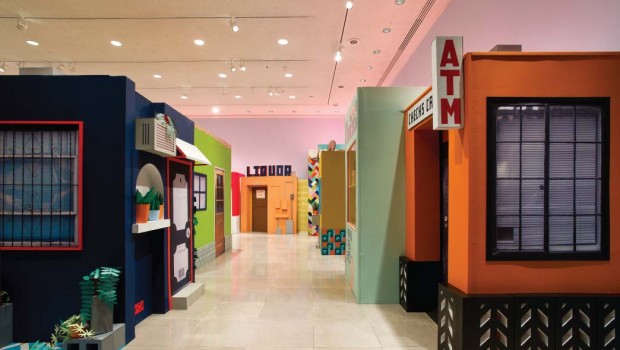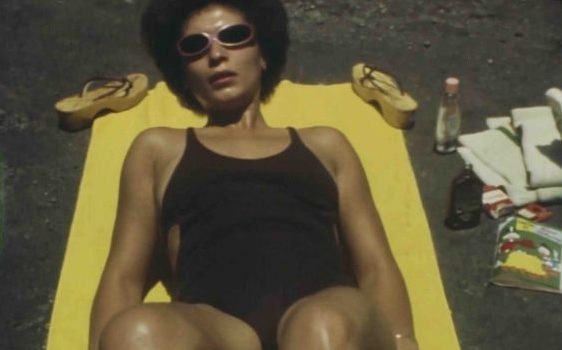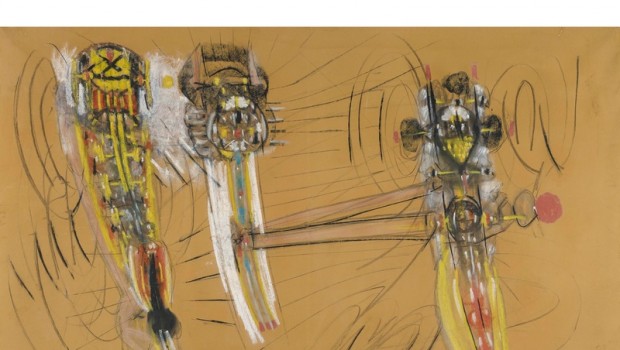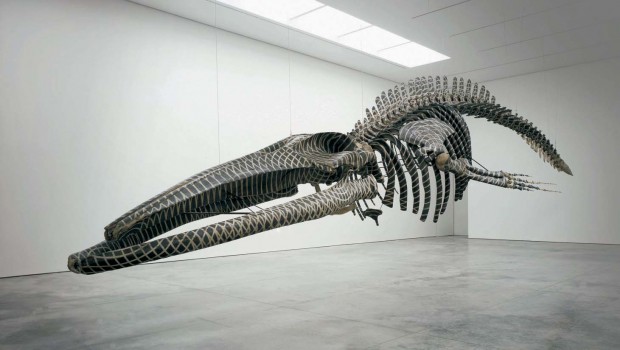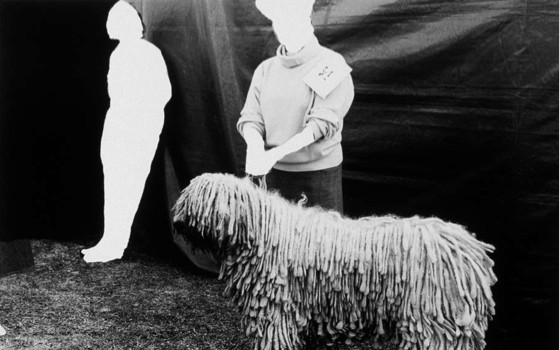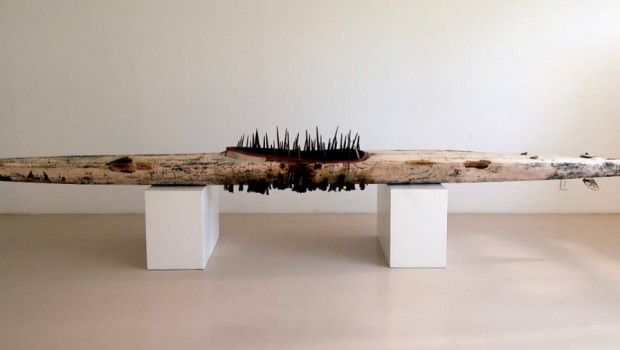Dark Trees: A Conversation with Damien Hirst
Necesitamos más al arte que a Dios...
Rose Mary Salum
DAMIEN HIRST: ART IS LIKE HOLDING A MIRROR UP TO LIFE
Rose Mary Salum: When one looks at your work, one experiences an encounter with finitude. It seems to me that you explore the uncertainty which is at the core of human experience. Death, life, all of these things a human experiences and cannot avoid.
Damien Hirst: I think that’s what we all address, from my point of view. As an artist I always have confronted themes I can´t avoid and death is a big one, isn´t it?
RMS: How have you and your work changed since your last exhibit in Mexico, The Death of God, Towards a Better Understanding of Life without God aboard The Ship of Fools.
DH: I don´t really think about change that much. I have the same ideas, the same work. For me, what´s exciting about any kind of art is the map of the person´s life. If you look at the artists you admire, the work, they did here, the work they did there has to fit you as a human being. It has to make sense to you. I just feel a lot better working this way and I don´t know where it´ll go. Change is the part I do from the very beginning. It still is.
RMS: You’ve returned to the canvas (and painted even with your hands). Why did you decide to move to the canvas? And how are you dealing with the negative reviews it had received?
DH: Since the very beginning I’ve thought paintings are such an illusion. I´m mean, they are so “defy gravity.” Even an illusion of space in a painting is such bullshit. If you’re searching for a truth and you’re starting with an illusion it always seems enigmatic. Painting has always been magical because of that. The way I paint is very old fashioned. I even thought I was avoiding something I needed to confront, but I’m not quite sure. I got to the point where there is so much stuff surrounding me that, I though it would be a good escape. It seemed like a good idea to work with the same ideas, but on a smaller surface. It’s a great way to reflect.
With respect to the negative reviews, I´ve always had negative reviews. I remember a guy with a bag of chips that was looking at my work saying “This is not art.” I supposed I got much criticism in London for showing these pictures in the Wallace Collection. I guess a lot of people didn´t like the idea of putting my art next to the classic works. I supposed it’s too early to say what a good painting is. So much has been done in painting, that you don’t really need to be a very skilled crafts person to produce a painting.
RMS: Do you agree with Heidegger when he says art unveils the truth?
DH: Yes, it helps to unveil the truth. Absolutely. That’s the greatest thing I like about art. I like John Ruskin´s quote when he says “art is like holding a mirror up to life.” I think we need art probably more than we need God, whoever she or he might be.
RMS: What came first, art or money?
DH: The goal is art. You try to achieve art, to move people. You don´t use it to make you rich. The moment the goal becomes the money, you fail. The first thing it needs to happen when you are an artist is that you have to believe in yourself. By believing in yourself, there´s a huge chance other people will also believe in it. If you stop believing, art fails. You might be able to fool people, but that´s not what art is about, it´s about belief. You don´t want to go there, because that´s wrong.
RMS: What do you like about Francis Bacon the most? He has been a huge influence in your work.
DH: I just like the fact that he was doing figurative paintings when it was really unfashionable. He never believed in fashion. When I saw Bacon, I said “Fuck, he has done it all.” And then, I found sculpture and thought it would be easier to explore that medium. I’ve always been interested in painting though. Bacon has managed to achieve things which were far beyond his ability. Just because he believed. So the answer to your question is belief, probably.
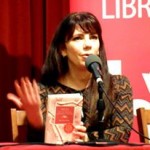 Rose Mary Salum is the founder and director of Literal, Latin American Voices. She´s the author of Delta de las arenas, cuentos árabes, cuentos judíos (Literal Publishing, 2013) among other titles.
Rose Mary Salum is the founder and director of Literal, Latin American Voices. She´s the author of Delta de las arenas, cuentos árabes, cuentos judíos (Literal Publishing, 2013) among other titles.
Download Complete PDF / Descargar
Rose Mary Salum: Cuando uno observa tu trabajo, experimenta la finitud. Me parece que exploras la incertidumbre esencial de todo ser humano. La muerte y la vida, todo esto es inevitable.
Damien Hirst: Desde mi punto de vista, pienso que todos buscamos ese acercamiento. Como artista, siempre me he enfrentado a temas que no puedo evadir y la muerte es un asunto importante ¿no crees?
RMS: Tu última exhibición en México fue La muerte de Dios, hacia un mejor entendimiento de la vida sin Dios dentro del barco de los tontos ¿Ha cambiado tu trabajo desde entonces?
DH: No pienso tanto en el cambio; en realidad tengo las mismas ideas y realizo el mismo trabajo. Lo que me parece apasionante de cualquier tipo de arte es que se vuelve un registro de la vida personal de cada artista. Si observas el trabajo que tu artista favorito realiza aquí y allá, tiene que estar completamente de acuerdo contigo. Debe tener sentido para ti. Me siento mucho mejor trabajando de esta forma aunque no sepa a dónde me llevará. El cambio es la parte con la que me comprometo desde el comienzo, y lo sigue siendo hasta ahora.
RMS: Has regresado al canvas, incluso pintado con tus manos. ¿Por qué decidiste ir al canvas y cómo has estado lidiando con la crítica negativa que has recibido en este medio?
DH: Desde el principio he pensado que la pintura es un espejismo. Es decir, son imágenes que se resisten a la gravedad. Incluso la ilusión de espacio en un cuadro es un engaño. Si buscas una verdad y comienzas con una ilusión resulta enigmático. La pintura ha sido mágica desde siempre por esto que menciono. Mi estilo de pintar es tradicional. Incluso llegué a pensar que estaba tratando de evadir algo que necesitaba enfrentar, pero no estoy muy seguro. Llegué al punto en el que he visto tanta cosa rodeándome que pensé que la pintura podría ser un buen escape. Me pareció una buena alternativa trabajar con las mismas ideas pero en una superficie más pequeña. Es una magnífica forma de reflexionar. Con respecto a la reseñas negativas, siempre las he tenido. Recuerdo a un tipo que mientras comía de una bolsa de papitas miraba mis cuadros y comentaba, esto no es arte. Supongo que muchas de las críticas que tuve en Londres fue por exponer en la Colección Wallace. Creo que a mucha gente no le gustó la idea de poner mi trabajo a un lado de las pinturas clásicas. Creo que es muy pronto para decir qué es una buena pintura. Se ha hecho tanto en la pintura que en realidad no tienes que ser una persona muy diestra para pintar.
RMS: ¿Estás de acuerdo con Heidegger cuando dice que el arte desvela la verdad?
DH: Absolutamente. El arte ayuda a desvelar la verdad. Es lo que más me atrae de éste. Me gusta la cita en la que John Ruskin dice: “el arte es como ponerle enfrente un espejo a la vida”. Creo que necesitamos más al arte que a Dios, cualquiera que ella o él puedan ser.
RMS: ¿Qué viene primero, el arte o el dinero?
DH: La meta es el arte. Se trata de alcanzar el arte, de conmover a la gente. No usas el arte para hacerte rico. En el momento en que la meta se vuelve el dinero, has fracasado. No hay que llegar a esos terrenos porque no es lo correcto. Lo primero que tiene que suceder cuando eres un artista es creer en ti mismo. Si crees en ti, lo más probable es que los demás creerán en ti. Si dejas de creer, el arte fracasa. Podrías engañar a la gente, pero de eso no se trata el arte. El arte es un acto de fe.
RMS: ¿Qué es lo que más admiras de Francis Bacon? Ha tenido una gran influencia en tu obra.
DH: Me gusta el hecho de que él hacía pintura figurativa cuando ya no estaba de moda hacer eso. Nunca creyó en las modas. Cuando vi a Bacon me dije “¡Carajo, él ya lo ha hecho todo!” Y después descubrí la escultura y pensé que podría explorar ese medio. Sin embargo, siempre he estado interesado en la pintura. Bacon manejó las cosas de tal modo que alcanzó objetivos más allá de su propia habilidad. Sólo porque creyó en él mismo. Así que la respuesta a tu pregunta sería probablemente la fe.
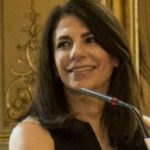 Rose Mary Salum es la fundadora y directora de Literal, Latin American Voices. Es la autora de El agua que mece el silencio (Vaso Roto 2015) y Delta de las arenas, cuentos árabes, cuentos judíos (Literal Publishing 2013) entre otros títulos.. Su twitter @rosemarysalum
Rose Mary Salum es la fundadora y directora de Literal, Latin American Voices. Es la autora de El agua que mece el silencio (Vaso Roto 2015) y Delta de las arenas, cuentos árabes, cuentos judíos (Literal Publishing 2013) entre otros títulos.. Su twitter @rosemarysalum
©Literal Publishing. Queda prohibida la reproducción total o parcial de esta publicación. Toda forma de utilización no autorizada será perseguida con lo establecido en la ley federal del derecho de autor.


